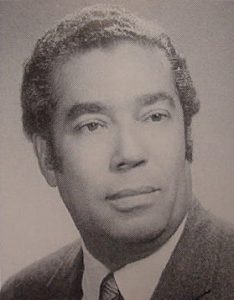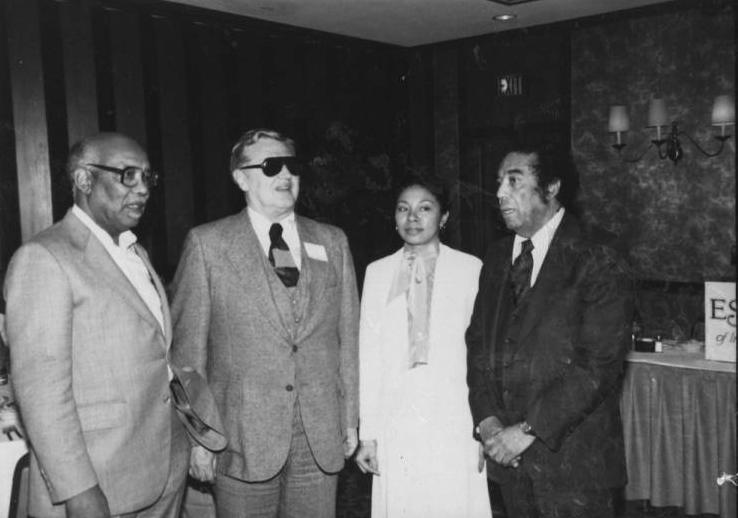
Photo info …
Credit: Warrick L. Barrett via Find A GraveView Source
(Oct. 20, 1919-Aug. 27, 2002). Born in South Carolina, Frank Perry Lloyd graduated from South Carolina State College, then from the Howard University School of Medicine in Washington D.C. He served as a Rockefeller Fellow at Columbia Presbyterian Medical Center in New York City, then taught at Columbia University. Coming to Indianapolis, he established his own medical practice, delivering babies and doing research in gynecology and obstetrics.

Lloyd became one of the first African American doctors on the medical staff at what was then at 16th and Capitol in 1954. He launched a new era as director of medical research in 1963, laying the groundwork for Methodists to become a teaching/research facility in addition to patient care.
In 1981, Lloyd became the first African American president of the hospital. Leading the institution through an era of major expansion, he hoped Methodist could become an Indiana version of the famous Mayo Clinic in Minnesota. The hospital pioneered the state’s first adult open-heart surgery in 1965, then the use of an artificial kidney in 1966, and kidney transplants in 1972.
Frank Lloyd also joined other civic entrepreneurs who put Indianapolis on the national map beyond the Indianapolis 500-Mile Race and high school basketball. The late State Rep. , an influential Indianapolis Democrat, called him “a unique personality—a Renaissance man.” Lloyd was the first chairman of the , paving the way for the downtown park as an anchor for urban renewal. He also served as co-chair of the , which was a key organization for the city’s revitalization in that era.
He was the key founder of the Midwest National Bank, expanding lending opportunities when traditional banks restricted their lending to African-Americans. He joined with other investors in 1968 to start radio station , offering a new African American perspective in the radio market. He served as president of the during the 1970s, as city fathers were laying the groundwork for the city’s growth spurt in subsequent decades. He also was one of the founding members of , an organization offering mentoring for young African American men.

Help improve this entry
Contribute information, offer corrections, suggest images.
You can also recommend new entries related to this topic.

